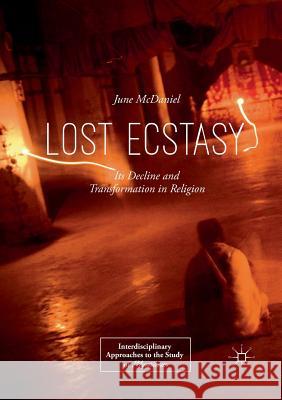Lost Ecstasy: Its Decline and Transformation in Religion » książka
topmenu
Lost Ecstasy: Its Decline and Transformation in Religion
ISBN-13: 9783030065126 / Angielski / Miękka / 2018 / 325 str.
Kategorie:
Kategorie BISAC:
Wydawca:
Palgrave MacMillan
Seria wydawnicza:
Język:
Angielski
ISBN-13:
9783030065126
Rok wydania:
2018
Wydanie:
Softcover Repri
Numer serii:
000772885
Ilość stron:
325
Waga:
0.40 kg
Wymiary:
21.01 x 14.81 x 1.78
Oprawa:
Miękka
Wolumenów:
01
Dodatkowe informacje:
Wydanie ilustrowane











